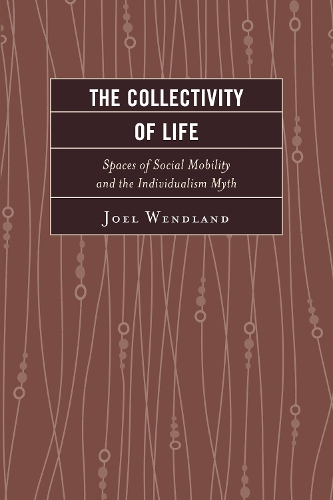
The Collectivity of Life: Spaces of Social Mobility and the Individualism Myth
(Hardback)
Publishing Details
The Collectivity of Life: Spaces of Social Mobility and the Individualism Myth
By (Author) Joel Wendland
Bloomsbury Publishing PLC
Lexington Books
1st February 2016
United States
Classifications
Professional and Scholarly
Non Fiction
Social mobility
809.933552
Physical Properties
Hardback
228
Width 159mm, Height 239mm, Spine 22mm
508g
Description
The Collectivity of Life is a study of autobiographical writing and oral histories situated in the late twentieth century United States. The central thesis is that by studying how the authors of these narratives articulate space in their stories, we can uncover a recurring critique of meritocratic individualism and reconstruct a counter-mythology that locates social mobility in collectivist experiences. Fourteen autobiographical works are studied, including those of Malcolm X, Audre Lorde, Barack Obama, and numerous other from multiple ethnic and several regions of the U.S., ranging from 1964 through 2008. More than 40 oral histories housed in archives in several regions of the country help to establish the books goal. By using a concept of space, this book shifts the focus of personal narrative from the internal resources of the individual to networks of support and collective efforts in the formation of their identities and the basis of their life accomplishments.
Reviews
This is a wonderful and insightful study that instantaneously establishes Joel Wendland as a leader in the field. -- Gerald Horne, University of Houston
In The Collectivity of Life Joel Wendland offers a brilliant new take on the crucial American myth of individual self-fashioning. He demonstrates how attending to material spaces allows us to see that so-called self-made people always emerge from a complex, collective process embedded in particular places and communities. In contrast to the statistically disproven claims that any individual can make it, Wendland shows how social movement organizers like Septima Clark, Ella Baker and Cesar Chavez model leadership empowered not by personal ambition or exceptional skill, but by rich connection to the collective power of ordinary folks. It is that collective striving for social and economic justice, not emulation of the lucky few successes who pretend to have made it on their own, that will provide the antidote to the vicious income inequality afflicting the US and most of the world today. -- T.V. Reed, Washington State University
Author Bio
Joel Wendland is assistant professor in the Liberal Studies Department at Grand Valley State University.
